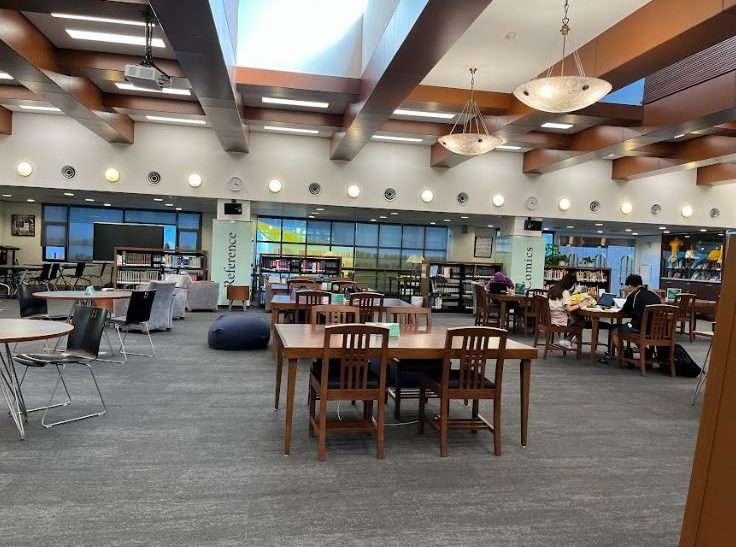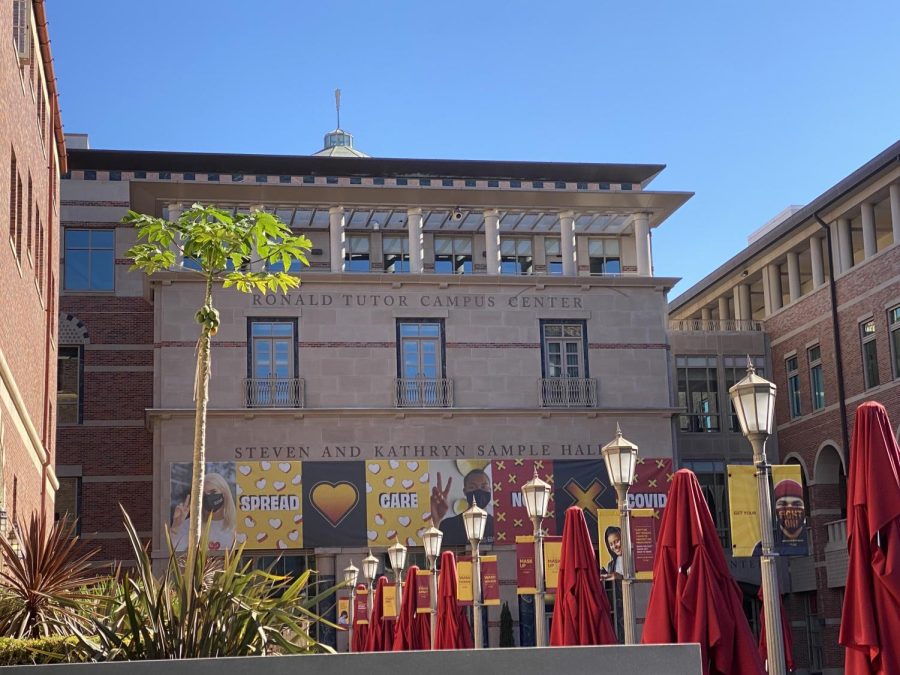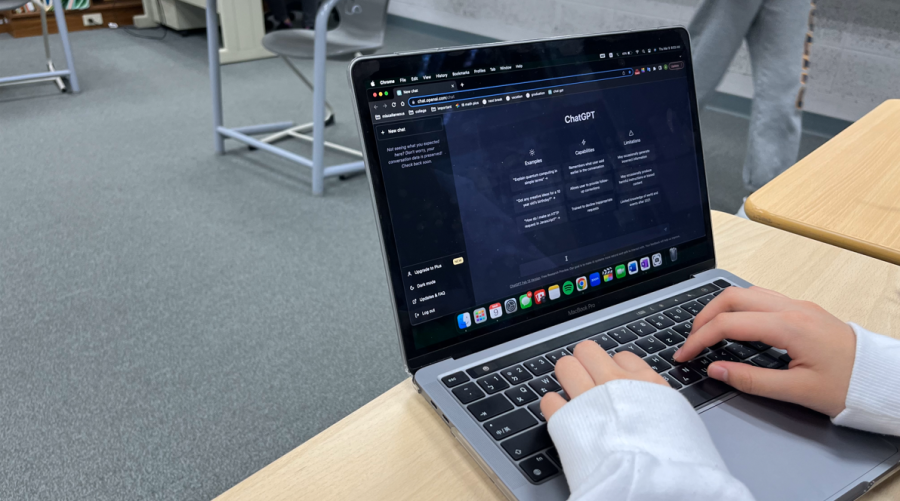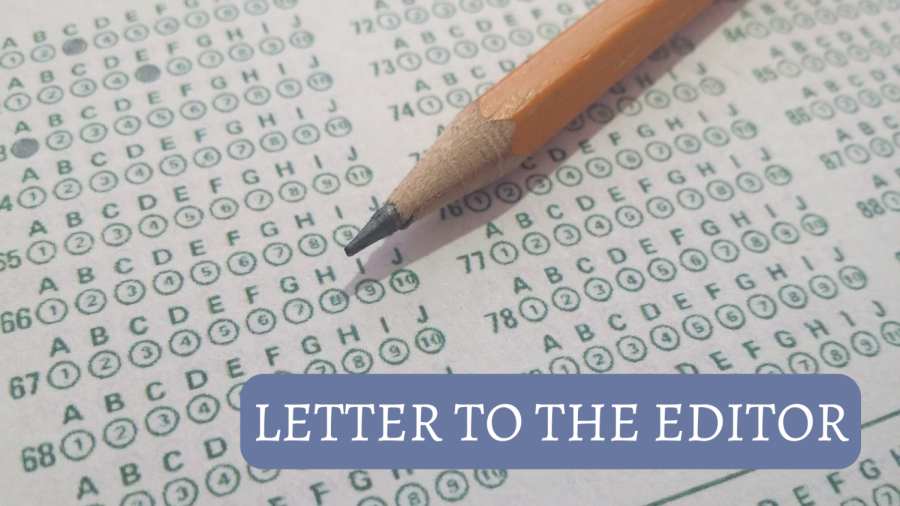At TAS, one of the only truly accessible parts of campus is the Legacy Commons, also known as the cafeteria. But every year the cafeteria becomes more and more crowded as the upper school expands. The same could be said about the Upper School Information Commons (USIC), an egalitarian space designed to let all upper school students gather and study. However, even the library has limits built into its space. Spaces are open to everyone while others are only made available to different groups of people at different times. It is a place to read and to work silently individually—collaboration necessitates talking and a space to work together. This year, a new addition to the library was added: a dedicated research room. However, this room is only open to a select group of students who take IB courses or those who are AP researchers. “There wasn’t really a place to highlight that special [research] work that was happening invisibly around the school,” Upper School Librarian Dr. Candice Aiani said. The room was originally the library’s designated printing room, but was repurposed after school-wide printer relocations and new updates. Essentially, the research room is designed for “advanced” students to have a space to work independently and quietly. The change was initially done in an attempt to better the quality of learning for advanced students. However, with this classification, the library is inherently dividing students into groups with preferential treatment that reward students who take more “advanced” classes. This creation of a specific group of students with certain library privileges cannot possibly be the antidote to our school’s competitive and, at times, academically toxic culture. At TAS, taking more “advanced” classes is already highly regarded, thus, highlighting this divide would create a further separation between students. By creating an exclusive study room, the library furthers toxic competition between students taking “harder” and “easier” classes. Moreover, it builds an elitist structure within the student body, making the divide between “easy” class students with “hard” class students much greater. Ironically, toxic competition was the focal point of the Honor Committee last year, but the dedicated research room just counteracts their efforts to create a less divided TAS. The Blue & Gold interviewed four students from the select group of IB students and AP researchers who would prefer to provide information “on-background” while remaining anonymous in this publication in fear of retribution or consequences as a result of this editorial. One student uses the new research room during lunch periods to work on his research as he finds it to be a useful place to complete the various assignments he has each day. However, the other three students find it unnecessary for a space to be made solely for the purpose of IB and advanced research. Not to mention, oftentimes, IB students work alone on research projects, so they tend to opt for going in the silent study room at the library to finish assignments. The fact that the school has created an advanced study room in the library is problematic because of the different classes of students it promotes, but that is not the only reason it is troubling. The second reason our publication takes issue with this room is because of the dearth of other spaces on campus reserved for students to work as small groups. While IB students and AP researchers may find themselves comfortable in an exclusive study room, many other students do not experience the same luxury. However, it is also important for us to understand that it is impossible for the school to create spaces that adhere to every student demographic. Our school is at record enrollment numbers, and, after the Solomon Wong Tech Cube was built, we know that the school has already built up as much of its current campus as possible. As of now, there are the library’s exclusive research room and the newly reopened study rooms which are open to all students. To ameliorate the issue of exclusive study rooms that further toxic competition, we believe that TAS should allow students to reserve classrooms in H-Block and W-Block to collaborate with their peers. Although IB students and AP researchers undoubtedly have heavy workloads, neglecting to provide an equally spacious and resourceful room for non IB or AP research students would be unfair, to say the least. By opening classroom spaces in H-block and W-block, the school would ensure students have access to the same resources and infrastructures, which should be the standard as all upper school students pay the same amount of tuition.

![The snack bar serves different lunch
boxes everyday. [AIDEN SHEN/THE BLUE & GOLD]](https://blueandgoldonline.org/wp-content/uploads/2023/12/Price-849x1200.jpeg)
![The live-action remake of Snow White from Disney is projected to release in March of 2024. [LOGO COURTESY OF THE WALT DISNEY COMPANY/WALT DISNEY].](https://blueandgoldonline.org/wp-content/uploads/2023/11/unnamed-1200x848.png)



